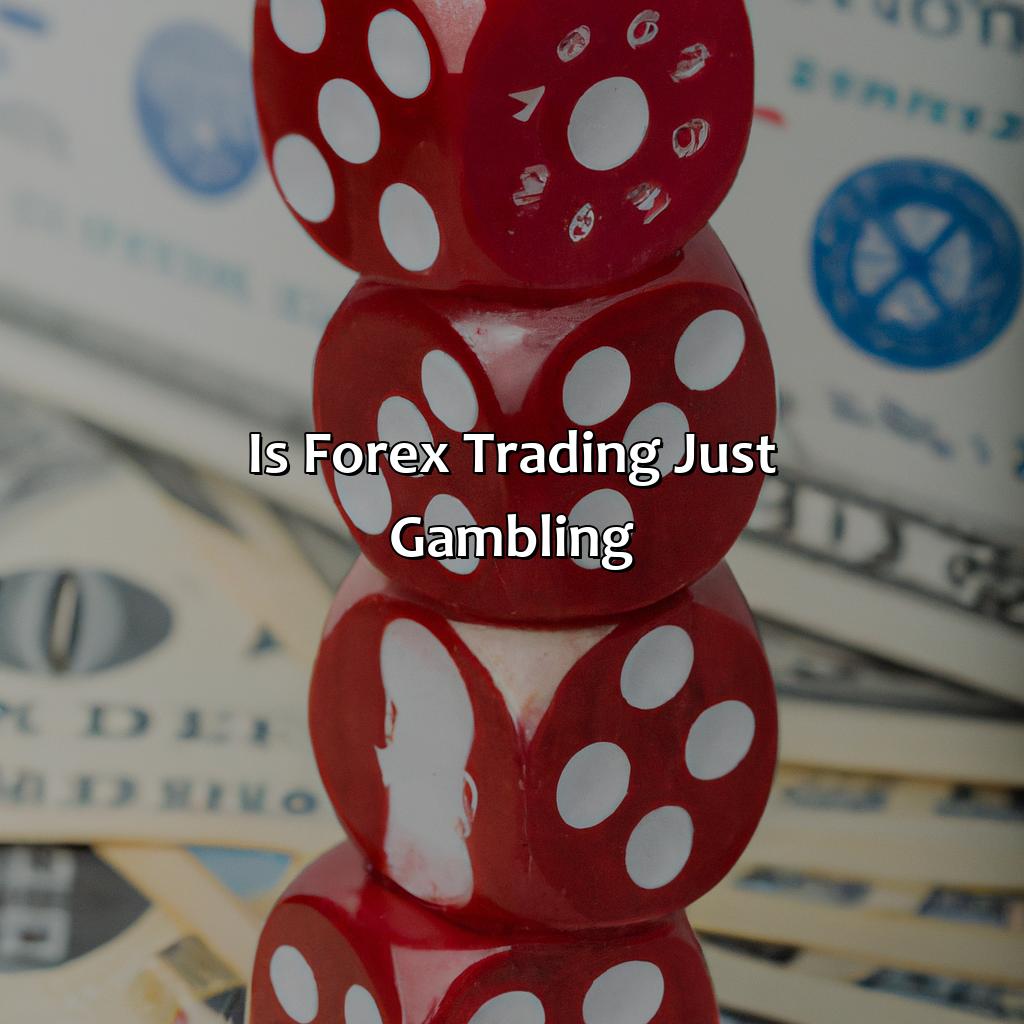
Key Takeaway:
- Forex trading is not just gambling. It involves a thorough understanding of the fundamentals of Forex trading, including currency pairs, market analysis, and strategy development using technical and fundamental analysis. Profit and loss are a significant part of Forex trading.
- Although Forex trading involves a certain level of risk, it is not gambling. In gambling, the outcome is based solely on chance, while Forex trading requires knowledge, skill, and risk management. Forex traders use leverage, margin, and stop-loss orders to minimize risks.
- Emotions play a crucial role in Forex trading. Traders who can discipline themselves to avoid impulsive decisions and manage their emotions are more likely to succeed. Conclusively, Forex trading requires a different mindset and routine than gambling, emphasizing discipline, realistic goals, and adequate research.
The Fundamentals of Forex Trading
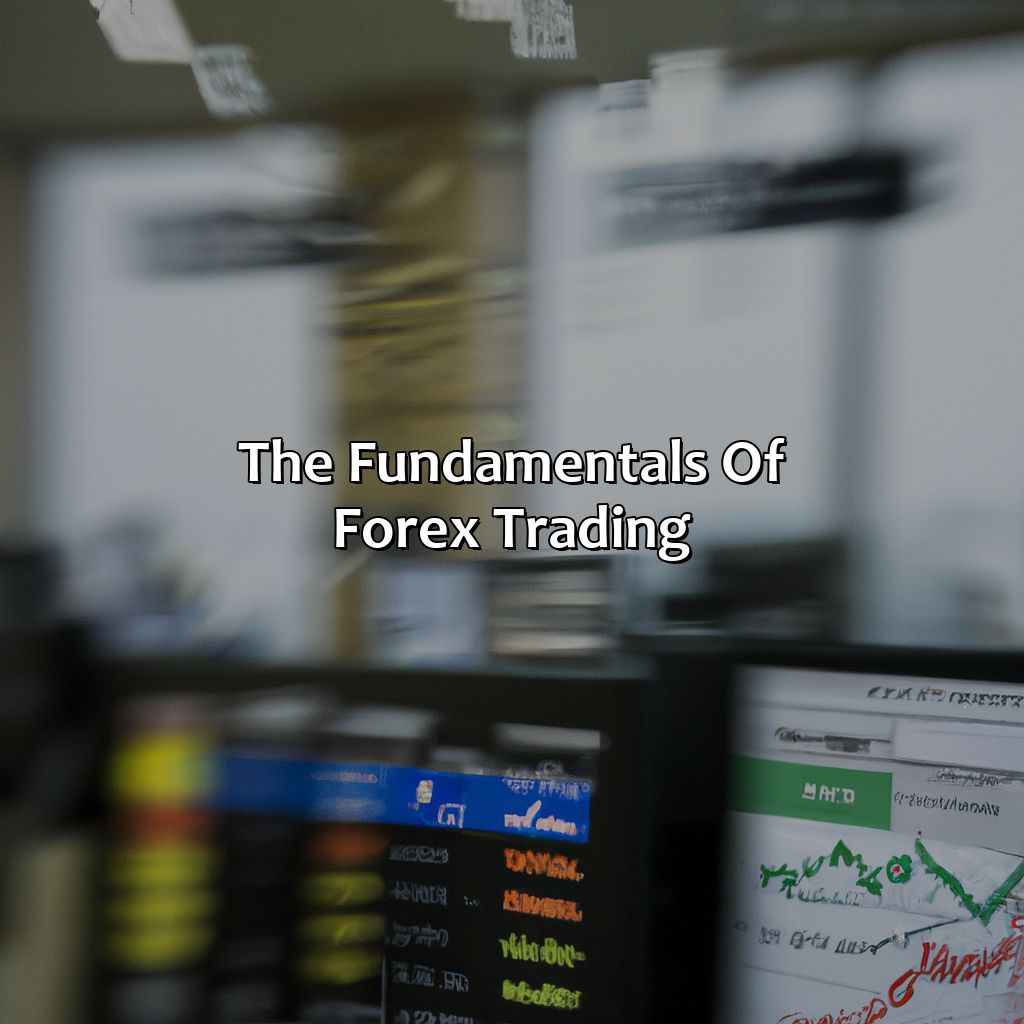
Photo Credits: forexbrokerreport.com by Sean Martin
You need to know the definition and meaning of Forex trading to grasp its fundamentals– currency pairs, market analysis, strategy development, technical analysis, fundamental analysis, profit, and loss. Also, having an awareness of Forex trading’s importance in the global economy and financial markets will be useful on your Forex trading journey.
Definition and Meaning of Forex Trading
The world of finance can be complex, and forex trading is no exception. Forex trading refers to the buying and selling of currencies in a global market with the purpose of making a profit based on fluctuations in currency values. Essentially, it involves analyzing economic conditions and events across multiple countries to determine which currencies may rise or fall in value.
This practice has become more accessible than ever before, with the advent of online trading platforms that allow individuals to execute trades from anywhere in the world with just a few clicks. With its high potential returns, forex trading has become an increasingly popular way for traders to diversify their investment portfolios.
It’s important to note, however, that forex trading is not without its risks. As with any form of investments, there are always uncertainties involved that can affect currency values quite significantly. It’s essential for traders to develop and utilize sound strategies based on research and analysis before committing to trades.
Overall, forex trading is an exciting and dynamic field that requires careful study and dedication for success. While it may involve an element of risk akin to gambling, traders who approach it with discipline and education have a significant opportunity for profit in this constantly changing market.
Forex trading: where global economies and financial markets collide.
Significance of Forex Trading Around the World
Forex trading is a crucial component of the global economy, with trillions of dollars exchanged daily in various currencies. Its significance lies in its ability to facilitate trade and investment across borders, making it an indispensable part of financial markets worldwide. The high liquidity and low transaction costs of forex trading make it a popular choice for investors seeking quick profits or hedging against currency risks.
Over time, forex trading has evolved from traditional phone-based transactions to sophisticated online platforms that allow traders to access multiple global markets 24/7. This has made it easier for individual investors to participate in forex trading and contribute positively to the global economy.
One unique advantage of forex trading compared to other financial instruments is its sensitivity to geopolitical events, making it an ideal tool for analyzing global trends and anticipating future market movements.
To succeed in forex trading, one needs to have a deep understanding of market drivers and economic fundamentals. Thorough research and analysis can help mitigate inherent risks such as exchange rate volatility or counterparty risk. Having a disciplined approach, avoiding impulsive decisions or emotional biases, is also critical for long-term success.
Overall, the significance of forex trading cannot be overstated – it plays an integral role in facilitating cross-border commerce and contributes significantly to the global economy’s stability and growth. As long as traders remain vigilant about the inherent risks involved and adhere to best practices, forex trading will remain a vital tool for investors worldwide.
Forex trading is like gambling, but with a chance of making money and fewer watered-down drinks.
Is Forex Trading Considered as Gambling?
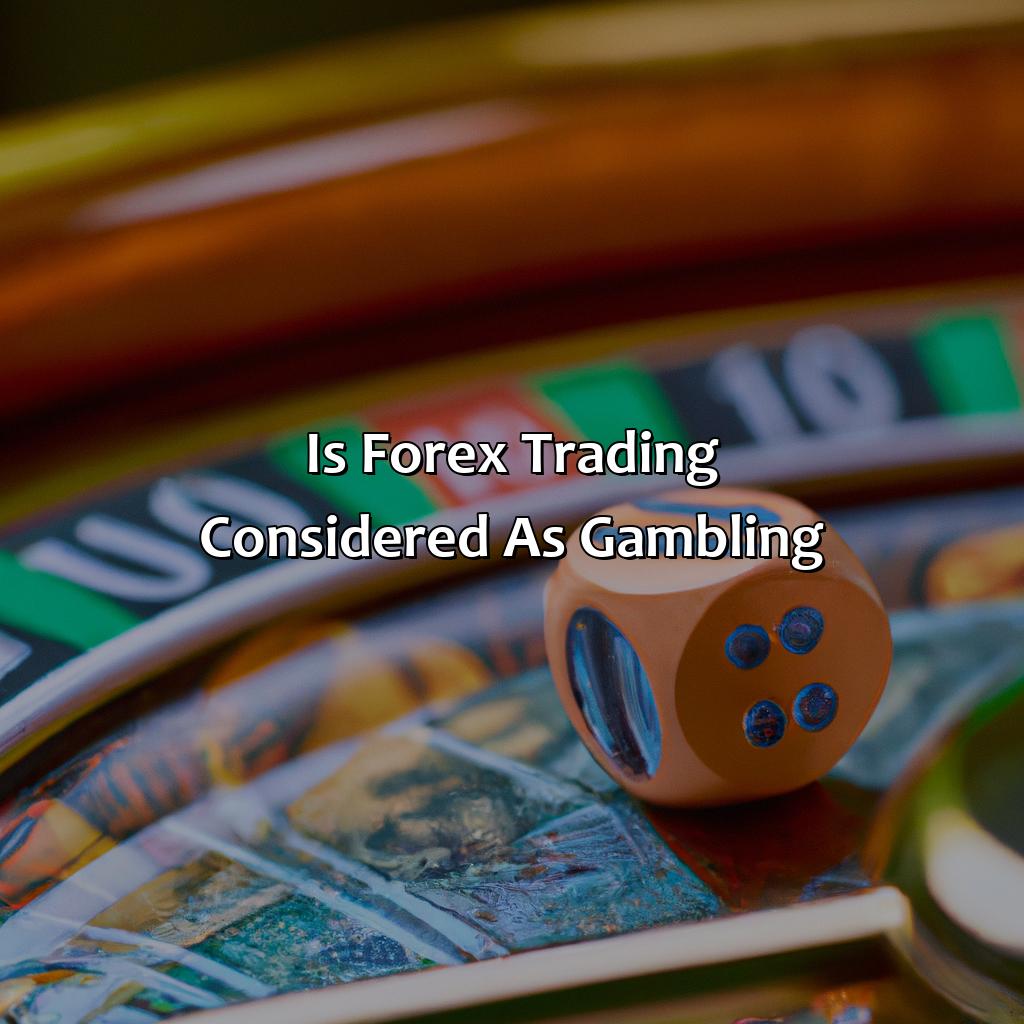
Photo Credits: forexbrokerreport.com by Philip Young
Want to know if Forex trading is gambling? Look closer at risk management and trading psychology. In this section, we’ll explore the similarities between Forex and gambling. We’ll also look into the risks of Forex trading, like leverage, margin, and stop-loss. Finally, we’ll discuss the effect of emotions on Forex trading.
The Comparison of Forex Trading to Gambling
Forex Trading as Compared to Gambling:
Forex trading is often compared to gambling due to its speculative nature. Both involve taking risks and investing money with the hope of making a profit. However, there are significant differences between the two that need to be considered before making any decisions.
| Comparison | Forex Trading | Gambling |
|---|---|---|
| Risks involved | Calculated risks taken based on research and analysis of market trends and indicators. | Unpredictable risks taken without a solid strategy or prior research. |
| Strategy & Experience | Negotiations come down to an investor’s strategy and experience. | Luck plays a more significant role than strategy or experience in decision-making. |
Additionally, forex trading requires ongoing research and analysis to understand market trends and make informed decisions. On the other hand, gambling relies on chance more than anything else.
Some similarities between forex trading and gambling include the potential for high rewards as well as losses. This makes it crucial for investors in both fields to manage their risks carefully.
An example of how these differences can play out is the true story of John from New York City who invested heavily in forex trading without doing enough background check which resulted in huge losses. As per his explanation, he admitted taking impulsive decisions because he didn’t have an appropriate trading plan or strategy. He later recognized that although similar in some ways, forex trading should not be treated with the same mentality as gambling.
Forex trading: risking your money with leverage, margin, and stop loss, because it’s not enough to gamble on sports anymore.
The Risks Involved in Forex Trading
Forex trading involves risks that need to be understood before investing. There is a high probability of losing the invested capital, and this risk increases further with the use of leverage. Trading with margin creates more substantial losses if there are price fluctuations against the market position. Stop loss orders can help limit losses to a certain extent, but they do not guarantee avoiding them altogether.
Apart from financial risks, one should be aware of psychological factors such as greed, fear, and emotional reactions. Failures and losses can lead to overtrading or panic selling, resulting in more significant losses.
To mitigate these risks, it is essential to maintain a sound trading plan and strategy that balances risk management with expected returns. It is recommended to avoid impulsive trades based on rumors or emotions and focus on informed decisions backed by fundamental and technical analysis.
Pro Tip: Always start trading with small investments and increase the trade volume steadily as you gain confidence in your strategy.
Forex trading is like a rollercoaster of emotions, so buckle up and hold on tight.
The Effects of Emotions in Forex Trading
Traders with experience in forex trading understand the importance of trading psychology and dealing with emotions. The emotions experienced by traders during forex trading can significantly affect their overall success. Emotions such as fear, greed, panic, and overconfidence can cloud judgment and lead to making impulsive decisions. To mitigate these destructive emotions, traders must develop discipline, patience, and a strong mindset to make rational decisions based on reliable market analysis. Effective management of emotions is crucial for long-term success in forex trading while ignoring it might cause emotional turbulence that could lead to unprofitable trades.
Forex trading is not a game of chance, it requires strategy development, experience, research, and analysis, whereas gambling relies solely on luck.
The Differences between Forex Trading and Gambling
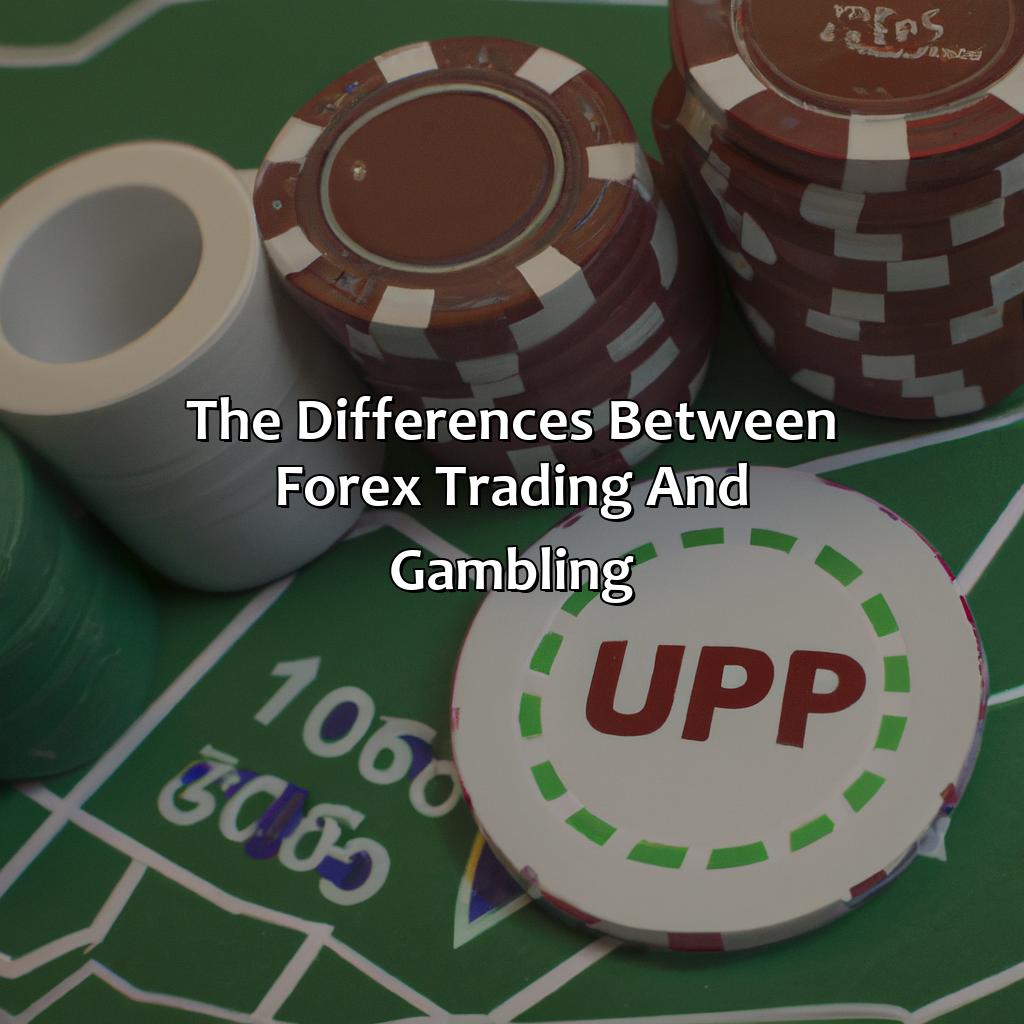
Photo Credits: forexbrokerreport.com by Michael Rivera
Know the difference between Forex trading and gambling? Get experienced and make a strategy. To do this, analyze the market. Use trends and patterns to make informed decisions. Learn two key sub-sections for Forex trading. They are:
- the role of strategy and experience;
- research and analysis, and how important they are.
The Role of Strategy and Experience in Forex Trading
In forex trading, the development of a strategic approach is imperative for consistent successes. Experience plays a vital role in strategy development since this helps traders hone their skills and understand the intricacies of the market better. Experienced traders often use multiple strategies and tailor them to suit various market conditions. Proper use of these strategies provides a distinct advantage in making well-informed investment decisions and mitigating risks.
Moreover, strategy development needs to be based on extensive research, proper analysis, and an understanding of relevant indicators such as technical data, economic data, or market trends. Traders with experience are also in a better position to analyze available data and make informed decisions. This ensures that an effective strategy is used that provides consistency in one’s approach to trade forex.
Furthermore, the combination of experience and strategy development helps traders reduce uncertainty levels as they can rely on proven methods when dealing with uncertain markets or unexpected situations. It enables them to modify their approach or adjust their strategy without compromising overall performance.
According to research by Global Network FX (GNFX), experienced traders tend to maintain success rates throughout different market cycles compared to novice traders who suffer more significant losses during specific market cycles.
Source: https://www.globalnetworkfx.com/forex-trading-success-rates-what-factors-matter/
Without proper research and analysis, Forex trading is like playing poker blindfolded.
The Importance of Research and Analysis in Forex Trading
A fundamental aspect of successful Forex trading is the thorough research and analysis of the market trends and indicators. By carrying out comprehensive research, traders can identify the best opportunities to invest in and generate profitable returns. Analysis of market movements helps develop a better understanding of potential risks and rewards, leading to successful investments in the long run. In addition, studying economic factors such as interest rates and global events such as pandemics can provide a deeper insight into the future market trends.
Traders need to understand how various technical indicators work and use them in their analysis so that they can make informed decisions with confidence while trading. These analyses also aid traders in identifying their strengths and weaknesses based on their chosen strategy’s performance over time. Thus, consistent analysis is an essential component of a robust forex trading strategy.
Other than tracking market trends, traders must analyze specific assets they wish to trade regularly. Often currency pairs correlate strongly with other financial markets’ performances, such as commodities or stocks; hence traders would need to observe these markets’ moves. This enables them to spot patterns simultaneously across all asset classes, making well-informed trades that are diversified.
By investing ample time into researching economic events and performing detailed analyses of financial assets’ performance, traders remain updated on crucial news developments that could impact their portfolios positively or negatively.
One example would be when news broke on COVID-19 affecting China before spreading globally; The Australian dollar significantly dropped when Australia’s largest trading partner slowed down its manufacturing output as experts predicted China’s GDP growth for 2020 would fall from 6% to 5%. Many forex traders monitoring this situation worldwide saw several potential trades exploring investments like USD/CNY selling signals against AUD/JPY buying trades.
Therefore, with exceptional research skills required to be successful in Forex trading alongside critical thinking skillsets honed by detailed analysis afford discerning traders the best chance at breaking even or garnering profits consistently.
Forex trading success lies in skillfully navigating risks with a solid trading plan, reliable platform, and savvy use of trading signals.
How to Mitigate Risks and Succeed in Forex Trading
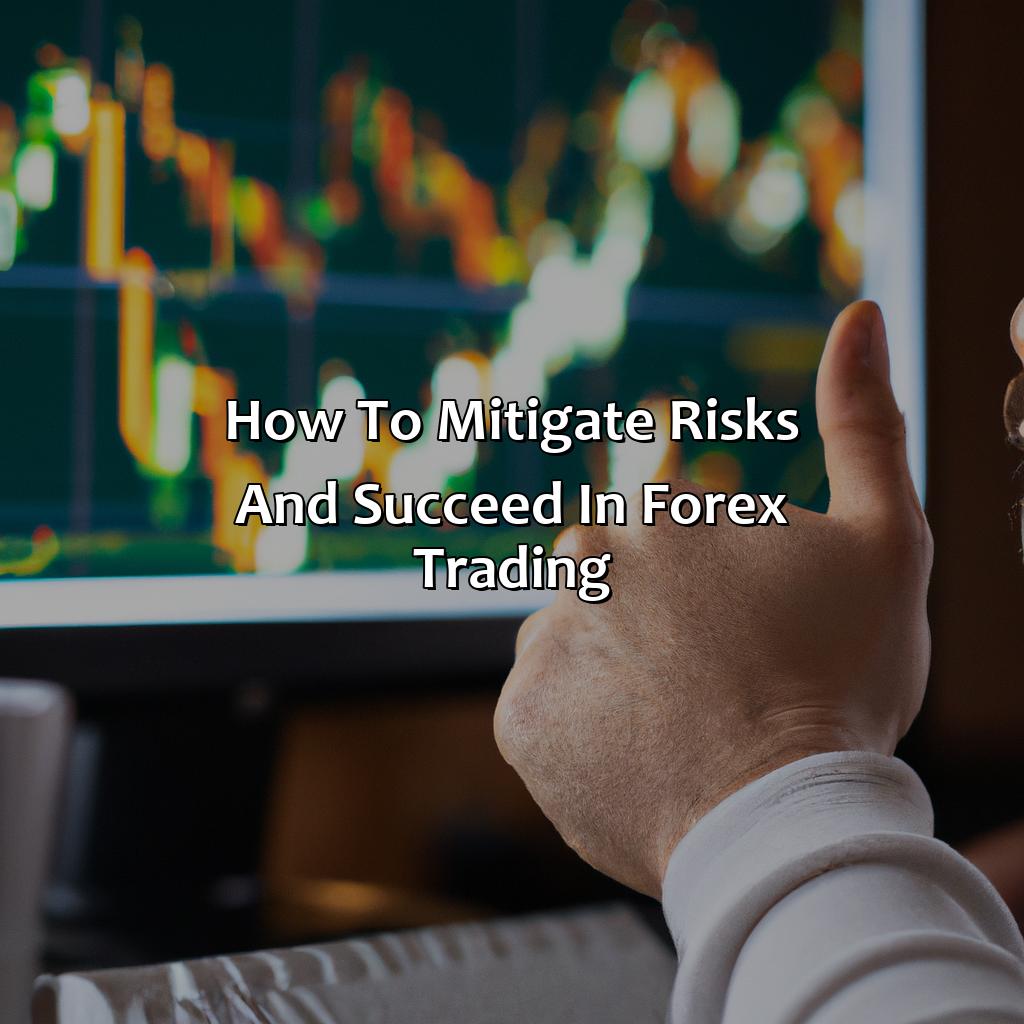
Photo Credits: forexbrokerreport.com by Wayne Taylor
To win in Forex trading, take risk management and a useful plan seriously. Mitigating risks is crucial. This section explains “How to Mitigate Risks and Succeed in Forex Trading“. Solutions include:
- Building a Strong Foundation in Forex Trading
- Choosing a Reliable Forex Broker
- Understanding Market Trends and Indicators
- Disciplining Emotions and Setting Realistic Goals
Building a Strong Foundation in Forex Trading
Forex Trading Education for a Strong Foundation
To succeed in forex trading, it is essential to build a strong foundation. A solid understanding of the basics and intricacies of forex trading is crucial. Without proper training, traders will struggle to navigate the complex market. To start your journey on the right foot, investors should seek an education in forex trading.
Joining a trading community is another essential factor in building your foundation. Veteran traders can offer advice and insight into their successful methods. Exchanging knowledge and ideas helps novice traders learn more quickly.
It’s also important to learn how to read charts and use indicators properly. These tools help identify trends and make informed decisions. Forex traders must continually gather information and analyze market conditions to ensure success.
There are no shortcuts when it comes to good research practices in any field, especially forex trading. Rushing into trades without careful consideration could lead to significant losses.
A True Story from Experienced Traders
Many traders attribute their successes as well as failures to education levels. Inexperience and lack of training often result in avoidable mistakes that could have been minimized or prevented with proper guidance.
For instance, some seasoned traders of major forex firms like Goldman Sachs typically attend advanced finance degree programs before participating in actual dealings themselves, further proving the significance of having a strong foundation when engaging in forex trading. Attaining sound knowledge through proper learning channels will not only increase your chances of success but normalize being wrong every once in a while.
Overall, by actively seeking education through resources such as joining communities, staying curious about market trends, examining proven strategies employed by professional counterparts serves as effective ways towards building stronger foundations which leads long-term results towards profitable outcomes that can make significant differences in your financial health via forex trading investments.
Finding a trustworthy forex broker is like finding a needle in a haystack, but the consequences of choosing the wrong one can be much more painful than a simple prick.
Choosing a Reliable Forex Broker
One crucial aspect of successful forex trading is choosing a dependable forex broker. Finding a professional forex broker that adheres to regulations, offers superior trading platforms, and provides competitive spreads makes a significant difference in the execution of trades. Partnering with a reliable forex broker can open up access to verified market analysis tools and data. However, poor choices made when selecting forex brokers who are frauds or do not perform well can lead to substantial losses.
It is important to carry out proper due diligence before selecting a forex broker. Trusted recommendations from professional traders regarding account management, trade executions, and customer support should be considered alongside researching reviews on different review sites. Also, it might require you to consider how your potential broker will benefit you as an individual trader based on your level of experience.
A good practice that professional traders use while choosing brokers is attending trade shows where they can engage with professionals within the industry one on one.
Traders must ensure their chosen forex broker has sufficient financial regulation compliance standard and client fund security policies; otherwise, their profits may be at risk. Overall, settling for trusted brokers is crucial as it helps traders build confidence in their trades and focus on executing strategies effectively rather than worrying over fraud risks.
Following market trends and analyzing price actions is key to successful Forex trading – unless you’re a psychic.
Understanding Market Trends and Indicators
To succeed in forex trading, understanding market trends and indicators is vital. Traders need to analyze the markets to identify current and future price movements by examining various factors such as economic events, political news, and statistical data. They use market analysis to forecast the direction of currency prices, which helps them make informed trading decisions.
With price actions being difficult to predict, traders use trend-following strategies that involve analyzing chart patterns and technical indicators to identify profitable trades. This process involves monitoring support and resistance levels, moving averages, oscillators, and other metrics.
Moreover, traders must stay up-to-date with market developments by following news feeds and financial reports regularly. Being aware of global events can help traders understand the impact on various currencies’ values.
The significance of market analysis cannot be overstated for forex traders as it offers valuable insights that enable them to make informed trading decisions. With a solid understanding of trends and indicators, traders can protect their investments while accelerating their profitability.
According to a report by Orbis Research titled “Global Foreign Exchange Market 2021-2025,” the forex market is projected to grow at a CAGR of over 6% during the forecast period due to increasing cross-border trade activities worldwide.
When it comes to Forex trading, setting realistic goals and disciplining your emotions is like having a superpower in the world of trading psychology.
Disciplining Emotions and Setting Realistic Goals
One crucial aspect of successful forex trading is maintaining trading discipline and having appropriate trading goals. A trader must understand their emotions, personality, biases and triggers that may influence their decision-making process. Setting realistic goals helps in avoiding irrational trade decisions, burning through capital and contributing to mental fatigue. Steady planning for consistency allows traders to focus, maintain objectivity and reduce emotional biases while making trades.
Another critical factor is developing a successful trading psychology. Trading psychologists study how behavioral factors impact the financial market by analyzing investors’ sentiment and emotion. As a result, they work with traders to implement various strategies like cognitive behavior therapy focusing on core negative beliefs that negatively affect trades. Common issues include impulsiveness or lack of self-control leading to such problems as overtrading beyond one’s abilities.
Developing trading discipline requires creating a detailed plan with specific rules for identifying high probability trades- then sticking to them with confidence. Successful forex traders have isolated themselves from noise created by erratic price movements common in the Forex market—for example, excessive celebration after winning trades or overconfidence due to unverified results which lead to counterproductive events like repaying earlier gains.
Many traders go through hard times when implementing these psychological aspects of forex trading; however, it is crucial to remain patient while gaining experience as psychology evolves alongside your experience. The ultimate goal is continually sharpening your intuition using fundamental technical analysis and news events tracking data convergences’s when making market moves while remaining consistent despite changing conditions within the broader industry trend or economic changes in the global economy.
Forex trading success relies on a strong trading mindset, disciplined trading routine, and a willingness to learn from past trading mistakes and challenges.
The Final Verdict on Forex Trading and Gambling
After analyzing the facts, it can be concluded that forex trading cannot be equated to gambling. Forex trading involves analytical skills, market research, and strategic thinking, which are not present in gambling. While both forex trading and gambling involve risks, the former requires a strong foundation, discipline, and knowledge.
The final verdict is that forex trading can lead to profits or losses depending on factors like knowledge and experience. It is crucial to understand that forex trading should not be viewed as a mere source of entertainment but as an investment opportunity.
To summarize, it can be stated that while there may be similarities between forex trading and gambling regarding risk-taking factors, the process of decision making differs significantly due to fundamental variations in strategy implementation and level of skill required. Forex trading has the potential for high returns with proper management techniques; however, it is not a quick fix for financial growth. Instead, it requires thorough market research and strategy development through practice and experience.
Pro Tip: Always approach forex trading as an informed investor instead of blind speculation to effectively manage risks and reap long-term benefits.
Forex trading: where the potential for profit is high, but so is the risk – it’s like a high-stakes game of poker with global currencies.
The Pros and Cons of Forex Trading
Forex Trading: Weighing the Good and Bad
Forex trading entails opportunities and risks that come in tandem. While it has its upsides, there are also potential downsides to it. Here are some points to consider regarding forex trading:
- Pros
- High liquidity and accessibility
- Profit potential through leverage
- Diversification of investments across worldwide markets
- Cons
- Volatility that can lead to sudden losses
- Complexity in interpreting market trends
- Difficulty in regulating the sector because of lack of centralized control
Forex Trading: A Balancing Act
Regarding forex trading and its pros and cons, feasibility lies at a balancing act of learning from your mistakes, taking calculated risks, and keeping an open mind. One must weigh their preferences in growing wealth while also knowing what they are getting themselves into.
True story:
A trader who has earned millions through forex trading reiterates his fair share of setbacks, highlighting the need for discipline when faced with big wins or losses. He shared his experience as he learned to control his emotions and prioritize long-term goals over short-lived gains.
The Future of Forex Trading and Its Impact on the Economy
The dramatic rise of forex trading is poised to make a significant mark on the global economy. As economies become increasingly intertwined and businesses seek expansion opportunities, the impact of forex trading stands to be enormous. The ways in which it affects the world at large are not yet fully understood, but one thing is clear: forex trading is here to stay.
The future of forex trading holds plenty of promise for those who understand how it works and can navigate its volatile waters. With advances in technology and the availability of information growing every day, traders who know how to capitalize on these developments stand to reap significant rewards. As such, maintaining a strong understanding of market trends and analysis will be paramount going forward.
One important area of interest regarding the potential impact of forex trading on the global economy is the ability for individuals and corporations alike to engage in cross-border investments with ease. This could lead to an even stronger degree of interconnectivity between countries than currently exists, potentially leading to more opportunities for growth on a larger scale.
To succeed in this brave new world, traders must master several key skills. These include developing discipline around emotional responses, setting realistic goals, working with reliable brokers, and remaining educated about both current market trends as well as emerging developments that could shape the landscape moving forward.
As we move into this exciting new era for global finance, only one thing is certain: those who know how to navigate its complexities stand poised for great success. With the right skills and strategies in place, success in forex trading remains well within reach for anyone willing to put in hard work and dedication over time.
Some Facts About Is Forex Trading Just Gambling?:
- ✅ Forex trading involves analyzing market trends and making informed decisions, just like any other investment. (Source: Investopedia)
- ✅ Unlike gambling, Forex trading requires knowledge of technical analysis and fundamental analysis. (Source: Forex Trading)
- ✅Risk management is an essential part of Forex trading, and professional traders use strategies to manage their risks. (Source: Forex.com)
- ✅ Forex trading has a higher success rate than gambling, with over 80% of traders making a profit. (Source: DailyFX)
- ✅ Forex trading can be a lucrative career, with top traders earning millions of dollars. (Source: The Balance)
FAQs about Is Forex Trading Just Gambling?
Is Forex Trading just Gambling?
No, Forex trading is not just gambling. While there are certain risks and myths associated with the market, it is not a game of chance like French roulette. With a conscientious trading approach, a strategic plan, and a suitable market, Forex trading can be a profitable venture.
What are some of the Myths about Forex Trading?
There are a number of myths surrounding Forex trading, including the idea that it is just like playing games of chance. Another myth is that all Forex brokers are shady and unregulated markets are hazardous. Additionally, some believe that Forex trading requires a huge playing area and large numbers for payout, but this is not accurate.
Is it Possible to Get Scammed when Trading Forex?
Yes, it is possible to fall victim to a scam when trading Forex. There are some unsuitable brokers out there, such as MarketMaker and DealingDesk, who employ blind trading practices and may not have your best interests in mind. In order to avoid being scammed, it is important to do your research and choose a reputable broker with a proven track record.
Can Small Trading Accounts be Successful in Forex Trading?
Yes, small trading accounts can be successful in Forex trading with the right approach. While it may be more challenging to make significant gains with a smaller account, there are strategies and ebooks available that can help you maximize your profits and minimize your losses.
What is the Disadvantage of Trading Forex in an Unregulated Market?
The biggest disadvantage of trading Forex in an unregulated market is that there is no oversight or protection for traders. Shady brokerages may engage in unethical practices without fear of being held accountable. It is always best to choose a broker that is regulated by a reputable authority.
Why is Forex Trading Considered Hazardous?
Forex trading is considered hazardous because it is a highly volatile market. The prices of currency pairs can fluctuate wildly and unpredictably, making it difficult to make informed decisions. However, with the right approach and a solid strategic plan, you can minimize your risk and increase your chances of success.


